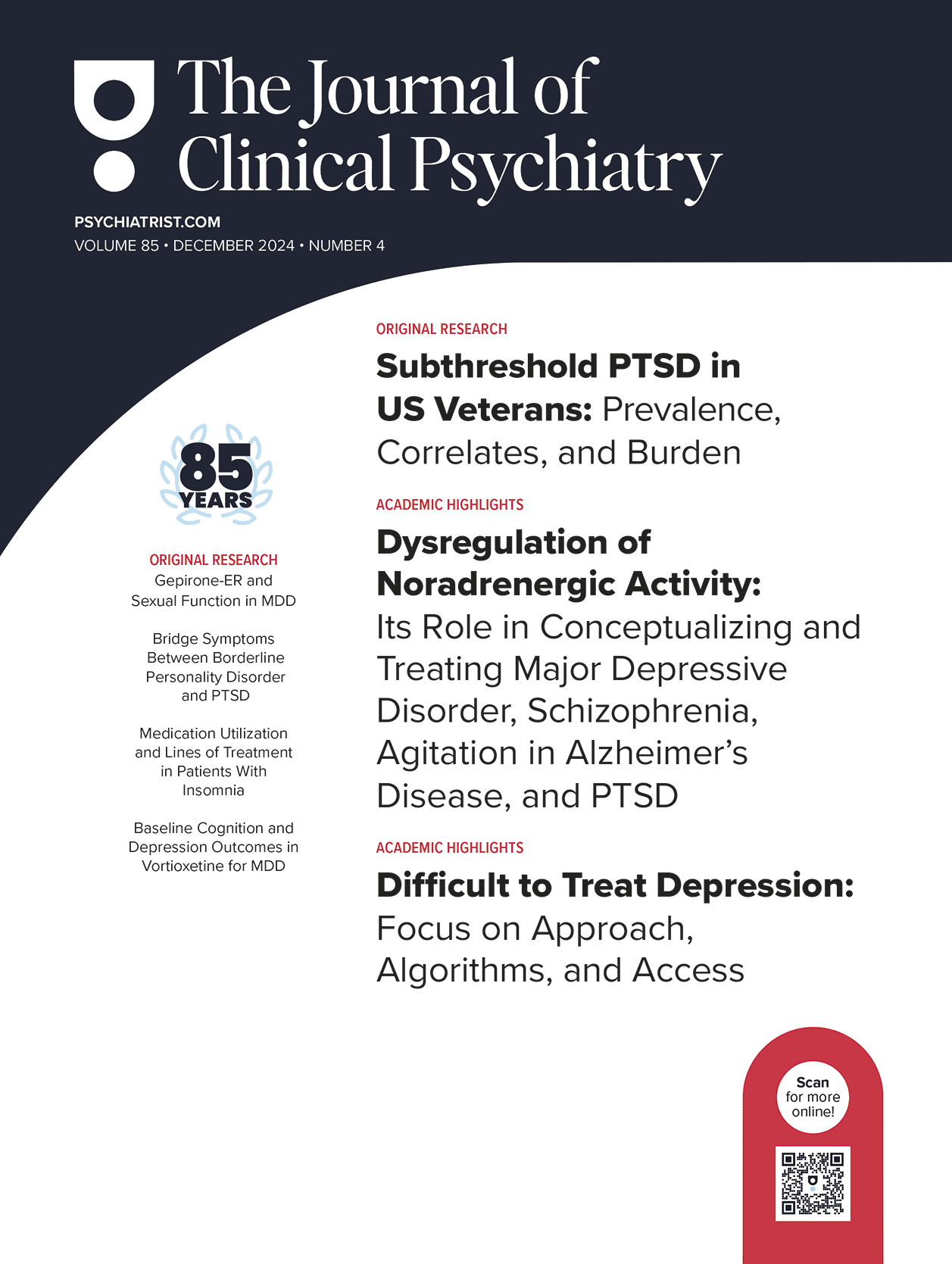Objective: The authors reviewed the published literature on the acute and long-term neurobehavioral effects on infants and children of either in utero exposure to maternal depression or in utero exposure to antidepressants.
Data Sources: The PubMed electronic database was searched to locate 292 English-language studies from the first available year to October 2013 using the keywords pregnancy, antidepressants, depression, perinatal, and neurobehavioral.
Study Selection: The authors reviewed only prospective studies that assessed the impact of maternal depression during pregnancy or maternal antidepressant treatment during pregnancy on (1) clearly defined short-term behavioral outcomes in infants (perinatal outcome) or (2) longer-term behavioral outcomes in infants and children (neurodevelopmental outcome).
Data Extraction: Studies were included if they were prospective and assessed the impact of maternal depression or maternal antidepressant treatment during pregnancy on clearly measurable, objective short-term and longer-term behavioral outcomes in infants and children.
Results: Untreated depression during pregnancy is associated with short-term neonatal effects, including increased distress after delivery, less than optimal orientation and motor activity, and disrupted sleep. Longer-term effects on neurobehavioral outcome have also been reported, including disruptive social behavior, depression, and changes in the period of sensitivity for language discrimination. Antidepressant exposure during pregnancy is associated with adverse short-term perinatal symptomatology, including effects on autonomic and motor activity, habituation, and sleep. Longer-term studies of neurobehavioral outcomes of in utero antidepressant exposure suggest potential effects on gross motor function and language development but not cognition.
Conclusions: In utero exposure to either maternal depression or antidepressants carries risks to the developing fetus. Treatment decisions regarding whether and how to treat depression during pregnancy must be made on an individual basis, with careful consideration of the impact of these decisions on both mother and infant.
Continue Reading...
Did you know members enjoy unlimited free PDF downloads as part of their subscription? Subscribe today for instant access to this article and our entire library in your preferred format. Alternatively, you can purchase the PDF of this article individually.
Please sign in or purchase this PDF for $40.00.
Save
Cite
Already a member? Login



